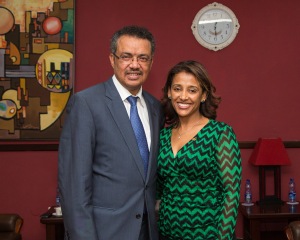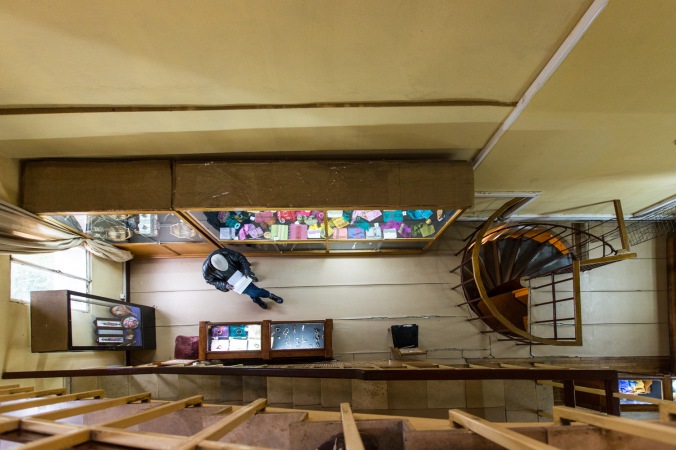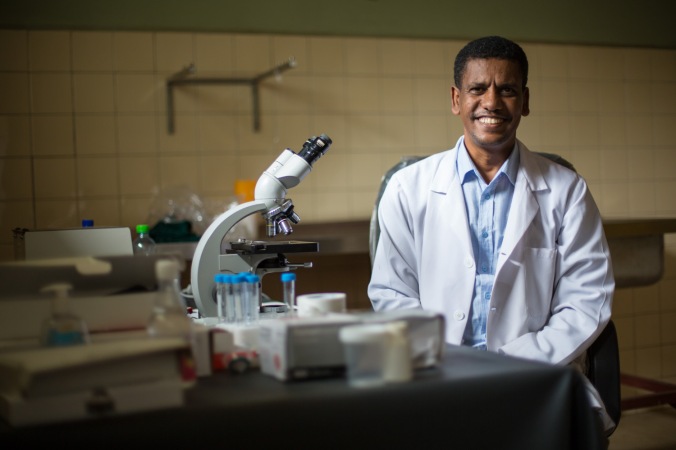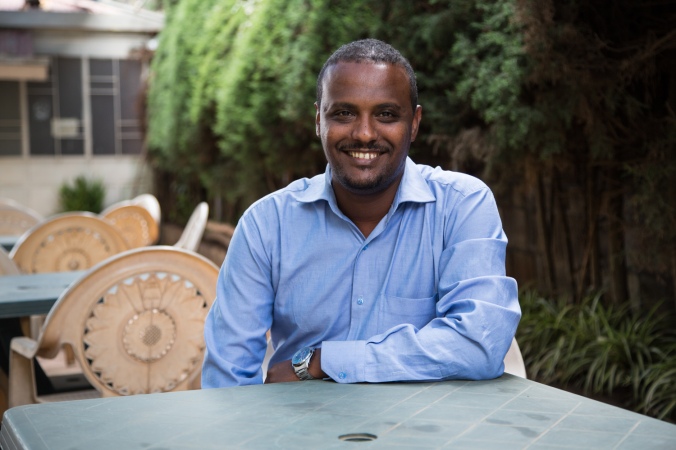We had the great honor to meet with Dr. Tedros Adhanom Ghebreyesus, Ethiopia’s former health minister who now serves as the country’s foreign minister. Dr. Tedros was one of the prime movers in establishing the partnership between the University of Michigan and St. Paul’s Hospital Millennium Medical College. He visited U-M three years ago and met with Joe Kolars, Tim Johnson and Senait Fisseha to discuss possible partnerships. He said U-M was an attractive partner because of the Johnson-led collaboration with colleagues in Ghana that has been working to improve health care in the West African nation for three decades.
“What Michigan did in Ghana could be easily applied here,” the foreign minister said. “You cannot implement U.S. standards here, but a U.S. institution with experience in Africa really has more to deliver in Africa. Some of the things they did in Ghana can be replicated in Ethiopia. They know what they are doing. They don’t come with some illusion about the situation and what can be done. They have the experience, so they will come will come with the right understanding and come with something that is tailor made for you.”









